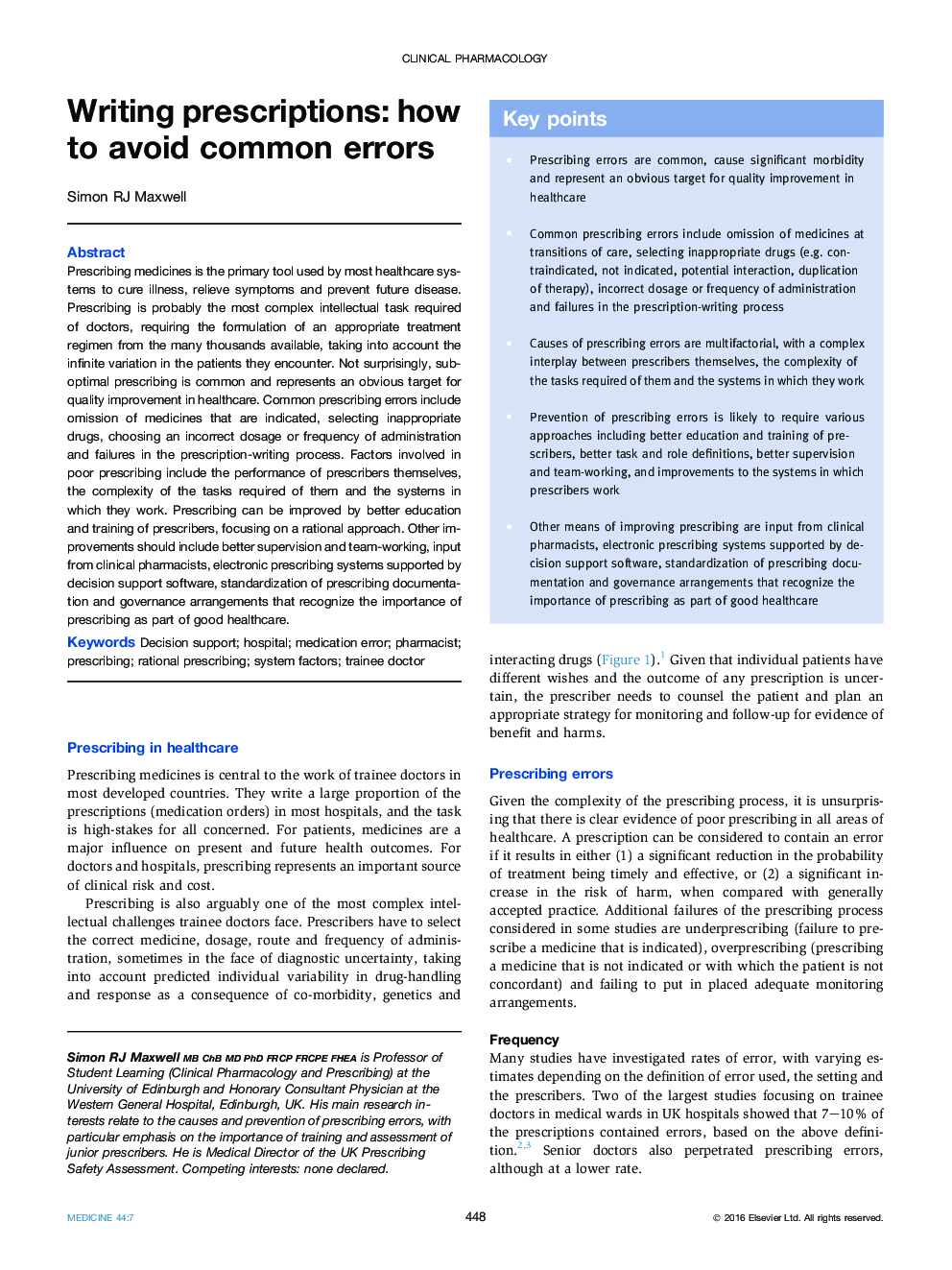| Article ID | Journal | Published Year | Pages | File Type |
|---|---|---|---|---|
| 3806100 | Medicine | 2016 | 5 Pages |
Prescribing medicines is the primary tool used by most healthcare systems to cure illness, relieve symptoms and prevent future disease. Prescribing is probably the most complex intellectual task required of doctors, requiring the formulation of an appropriate treatment regimen from the many thousands available, taking into account the infinite variation in the patients they encounter. Not surprisingly, suboptimal prescribing is common and represents an obvious target for quality improvement in healthcare. Common prescribing errors include omission of medicines that are indicated, selecting inappropriate drugs, choosing an incorrect dosage or frequency of administration and failures in the prescription-writing process. Factors involved in poor prescribing include the performance of prescribers themselves, the complexity of the tasks required of them and the systems in which they work. Prescribing can be improved by better education and training of prescribers, focusing on a rational approach. Other improvements should include better supervision and team-working, input from clinical pharmacists, electronic prescribing systems supported by decision support software, standardization of prescribing documentation and governance arrangements that recognize the importance of prescribing as part of good healthcare.
